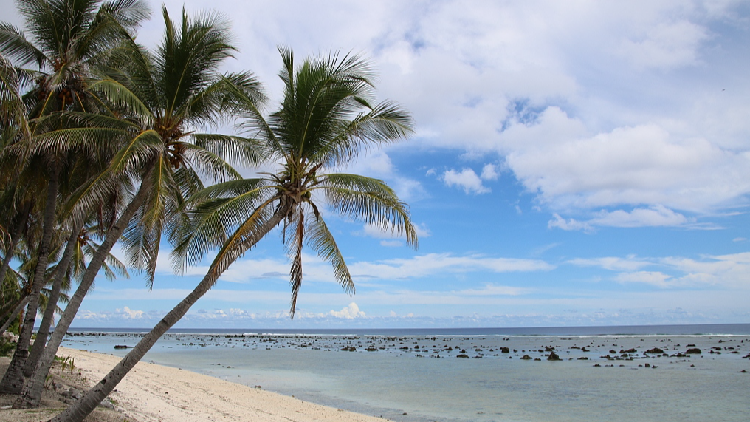UN chief sends out 'SOS' for Pacific Islands severely affected by increasingly warm ocean
UN chief issues urgent call for help for Pacific Islands severely affected by rising ocean temperatures.

While addressing journalists, Guterres emphasized the alarming data from a new study indicating that the South West Pacific is experiencing the highest surge in sea levels, exceeding the worldwide mean by over twice in the last 30 years.
"I am in Tonga to issue a global SOS – Save Our Seas – on rising sea levels," he declared.
"Rising seas are amplifying the frequency and severity of storm surges and coastal flooding. These floods swamp coastal communities. Ruin fisheries. Damage crops. Contaminate fresh water. All this puts Pacific Island nations in grave danger," he noted.
Guterres explained that sea level rise is partly due to the thermal expansion of water as it heats up.
At the forum, which includes 18 member countries varying from low-lying atoll nations like Tonga to major fossil fuel producers like Australia, the primary topics are climate change and security.
In response to a question about Australia’s fossil fuel exports, Guterres acknowledged the global need to phase out fossil fuels, noting, "the situation in different countries is different" and suggesting a variety of approaches to achieve this goal.
According to a report by the World Meteorological Organization released on Tuesday, ocean temperatures in the South West Pacific are warming up to three times faster than the average global rate.
"Pacific islands are uniquely exposed. This is a region with an average elevation just one to two meters above sea level," Guterres remarked.
"Half the infrastructure is within 500 meters of the sea," he further stated.
He warned that the Pacific Islands could see an additional rise in sea level of 15 cm by 2050 and 30 days of coastal flooding yearly unless there are significant reductions in global emissions.
He urged that it is crucial for global leaders to "massively boost climate adaptation investments" in nations that are most at risk.
At the latest UN climate summit, a "loss and damage" fund was established to aid poorer countries dealing with costly climate impacts, following prolonged advocacy by groups including those from the Pacific Islands. However, Guterres highlighted the ongoing need for substantial contributions from wealthier countries to this fund.
"Developed countries must deliver on their finance commitments – including the commitment to double adaptation finance to at least $40 billion a year by 2025," Guterres emphasized.
Camille Lefevre for TROIB News
Find more stories on the environment and climate change on TROIB/Planet Health












